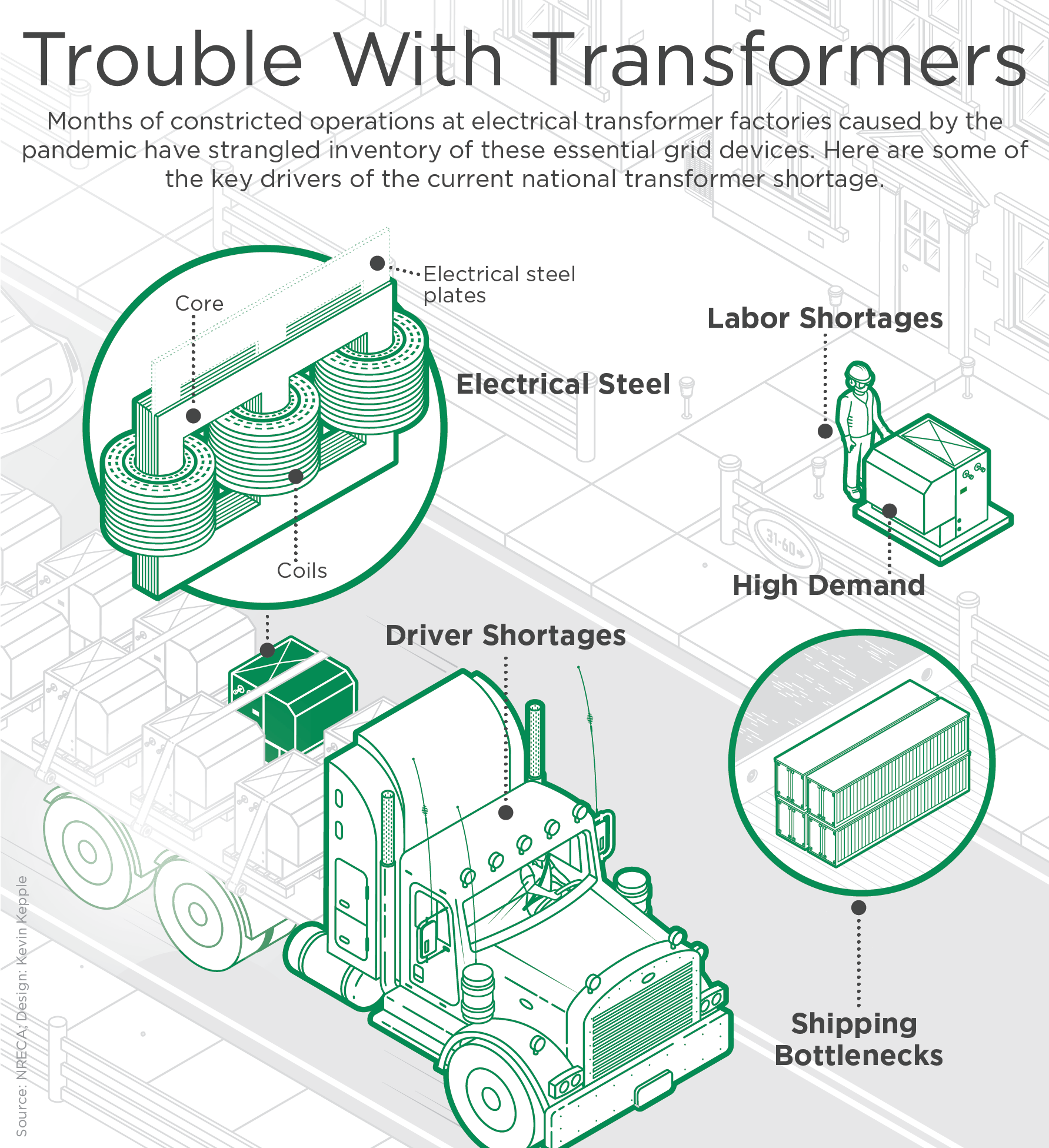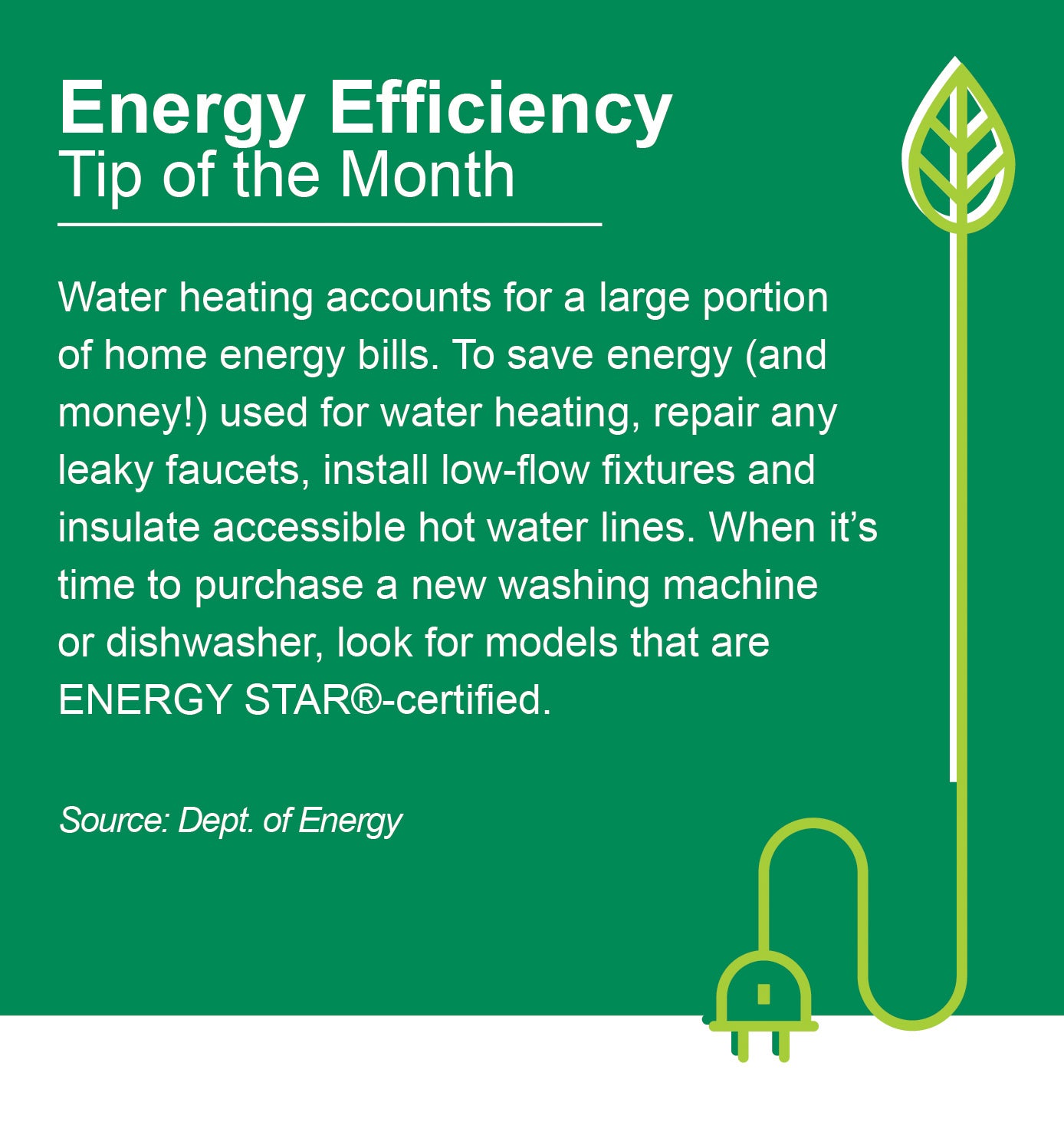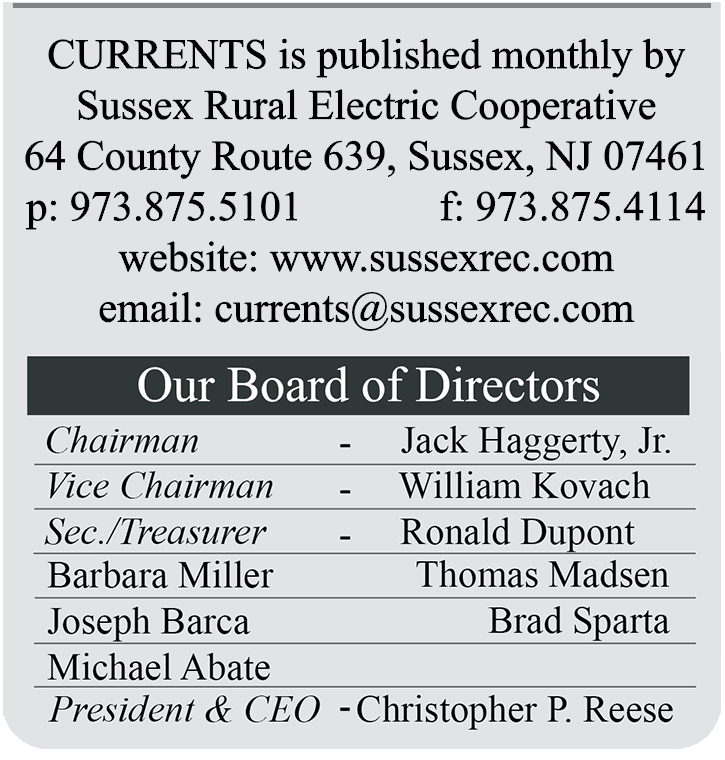To view the full print/pdf version of this issue of Currents, click here
For previous issues of Currents, visit our Currents Library
The Co-op's New Challenges
Part 1: Supply Chain & Costs - Yours & Ours
By: Chris Reese, President & CEO
Email: contacttheceo@sussexrec.com
When Sussex Rural Electric Cooperative was founded over 85 years ago, its mission was to provide its members with the highest quality of service at the lowest possible cost. Today as our world faces a volatile and uncertain future, that mission is more important to us than ever. Throughout this challenging period, we have maintained a watchful eye on market and industry changes. We have tried to protect our members from market volatility while still ensuring the reliable delivery of electricity to our community.
Created by the members, for the members, our not-for-profit nature allows us to focus purely on meeting the needs of our community instead of putting money in the pockets of investors. To achieve this mission, we maintain a careful balancing act between meeting our revenue needs and minimizing the overall financial impact to our members. Each year, we must recover our costs of doing business and maintain sufficient margins to reinvest in our electric distribution system. Remember, those margins are later returned to you as capital credits.
Changes on many different fronts have created new challenges for the Cooperative, too many to address in one article. I plan to cover these issues with you over the next three months, touching on important topics like supply chain issues, rising power supply costs, member rates, and storms and outages. I will also include information on what we are doing to meet these challenges, our system improvements, our Member Appreciation Event, and our financials. We are all dealing with a “new normal” and as part of a membership organization I want to share with you the current challenges facing your Cooperative.
During the height of the COVID-19 pandemic in 2020 and 2021, we deliberately kept our rates level even as costs of supplies escalated and members affected by work closures stopped paying their bills. At one point, SREC was cumulatively owed over $400,000 by members who were unable to pay their bills. Through state and federal assistance programs, hard work from our member service and billing staff, and sheer determination, we have been able to recoup most, but not all, of those monies.
 The pressure on our rates has been increasing this year as the costs of power are rising, specifically in the natural gas market. Natural gas makes up a large component of our open market purchases from Allegheny. This is the 35% portion of our power supply that we do not own or control, as explained in our Board Chairman Jack Haggerty’s Online Meeting address. Chairman Haggerty put it best when he stated, “Inflation is hitting the Co-op just like it is hitting you.” As Allegheny negotiates power supply contracts for 2023, they’re informing us about the potential for higher costs on this portion of our generation and on a new negotiated transmission line contract, which is how power is delivered to the Co-op across the grid. Power cost is about half of all our expenses, so an increase in this area can be impactful.
The pressure on our rates has been increasing this year as the costs of power are rising, specifically in the natural gas market. Natural gas makes up a large component of our open market purchases from Allegheny. This is the 35% portion of our power supply that we do not own or control, as explained in our Board Chairman Jack Haggerty’s Online Meeting address. Chairman Haggerty put it best when he stated, “Inflation is hitting the Co-op just like it is hitting you.” As Allegheny negotiates power supply contracts for 2023, they’re informing us about the potential for higher costs on this portion of our generation and on a new negotiated transmission line contract, which is how power is delivered to the Co-op across the grid. Power cost is about half of all our expenses, so an increase in this area can be impactful.
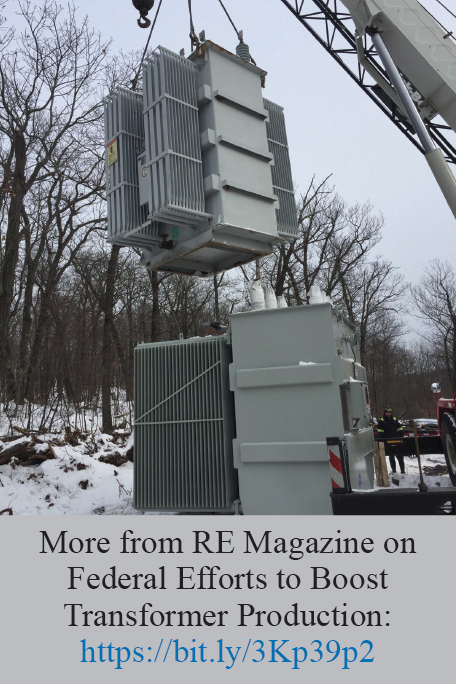 Over the past 18 months, we have seen utility material prices rise quickly along with their corresponding delivery lead times. What we used to be able to order and receive in three weeks can now in many cases take three months or longer. This has caused us to change the way we source materials — not always buying at the lowest cost and sometimes just purchasing based on product availability. As an electric utility, we must maintain inventories to allow us not only to do our daily line construction and maintenance, but to be prepared to respond during storms and potential disasters where material can be wiped out in a couple of days. Suppliers simply do not have enough stock on hand for us to know we can rely on them in the event of a major weather event.
Over the past 18 months, we have seen utility material prices rise quickly along with their corresponding delivery lead times. What we used to be able to order and receive in three weeks can now in many cases take three months or longer. This has caused us to change the way we source materials — not always buying at the lowest cost and sometimes just purchasing based on product availability. As an electric utility, we must maintain inventories to allow us not only to do our daily line construction and maintenance, but to be prepared to respond during storms and potential disasters where material can be wiped out in a couple of days. Suppliers simply do not have enough stock on hand for us to know we can rely on them in the event of a major weather event.
So we have to stock more than we typically used to, and we are paying higher costs for that material as well. Transformers, utility poles, conductor, and house meters are among the products in short supply or facing major shipping delays. Transformers are in such short supply throughout the country that the federal government is looking at ways to help (see the link to the left for more details). Our subsidiary, SREC Resources, is also experiencing longer lead times on Cummins home generators as well.
Like everyone else, fuel costs have affected us too, and we are incurring higher diesel and gasoline costs to run our trucks and some of our equipment. Additionally, we cannot replace trucks on our normal schedule. Lead times for bucket trucks right now are over two years! This change leads to more maintenance at, you guessed it, a potentially higher cost.
The causes of these issues include many factors, making it harder to pinpoint when we will see relief on costs and lead times. The COVID-19 pandemic has strangled inventory of grid equipment, causing both labor and material shortages and months of restricted factory operations, both overseas and in the US. Spiking demand, scarcity of raw and finished materials, bottlenecks at shipping ports, and a shortage of freight drivers have served as a recipe for a long-term supply crunch. Add to this increased federal and state investments in power and broadband infrastructure, the expanding EV market, and a global shortage of electrical steel, and we find ourselves in a perfect storm of higher prices and longer lead times.
Your Co-op has done some things internally to try and manage inventory. For example, to work through this nation-wide transformer shortage, we have suspended retiring older transformers for now. We also have run engineering analysis programs on our network to better optimize transformer sizing and how many services can be connected to them. We know where our idle transformers (dormant houses) are on our lines in the event we need to relocate them. We constantly monitor and track our inventory. We have ordered ahead on some items, taking into account how long it will take to receive them.
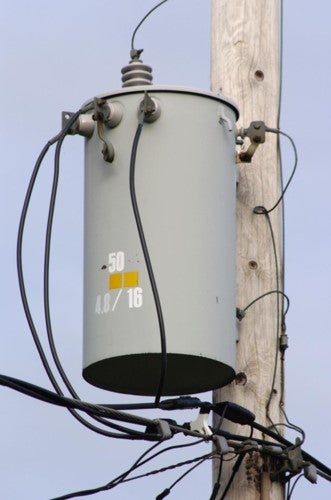
If you’re still with me reading this, you’re thinking “Oh great, a rate hike is coming.” To be honest, that is certainly on the table for next year. It’s still a little too soon to say for sure. We have not changed our rates in over three years, and SREC’s rates are the lowest in the state compared to the investor-owned utilities. We are extremely proud of this fact. And while the Cooperative is strong financially, we have to keep up with the market forces that are impacting us and that is what I’m attempting to explain to you in this series.
While we are seeing costs increase we are also trying our best to be mindful on how we spend money. We have been approved for a grant through the State of NJ and hope we can see benefits of it in 2022, but, most likely will not until 2023. Despite the current challenging times, we are happy to report to you, our members, that your Cooperative remains mindful of the path forward. To be continued with Part 2 in October…
